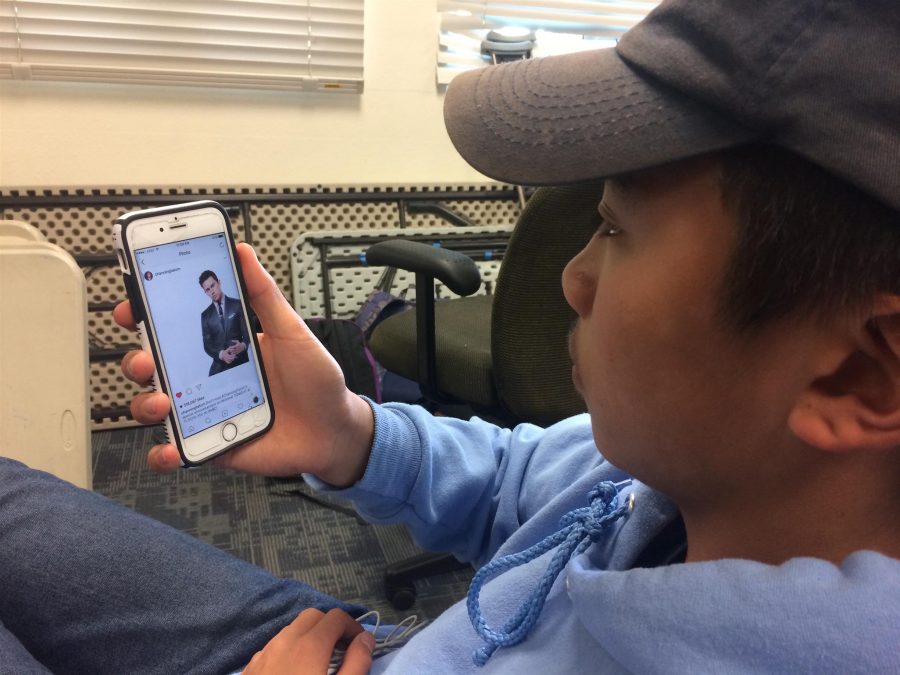For years, society has recognized the negative impact that the media can have on women but has failed to acknowledge any negative impact on men.
The media is a powerful source that drives insecurities among men of all ages. From television, movies, magazines, advertisements, Instagram, and Snapchat, to celebrities, athletes, and models, the media establishes and perpetuates unreasonable stereotypes for men not only physically, but emotionally as well.
Aaron J. Blashill, Ph.D., a staff psychologist at Massachusetts General Hospital and an instructor at Harvard Medical School, said in a Huffington Post article, “When you look at covers of ‘health’ magazines, like “Men’s Health,” those guys are getting airbrushed and digitally enhanced. They’re selecting the 0.1 percent most attractive, most ripped guys for the covers and enhancing them. Boys look up to these men.”
Men are commonly portrayed being tall with muscular and toned bodies, which is unattainable for most men, even for those who have large amounts of time to spend on their bodies.
Par Deus, a writer for BodyBuilding.com said, “Men are expected to just appear a model of male perfection while suppressing or hiding the extreme degree of energy [both physical and emotional] requisite to such a task.”
Regardless of their level of dedication and drive, most men will not be able to attain a body type that is comparable to those portrayed by the media as desirable.
Carlmont sophomore and football player Darian Dennler said, “I think everyone has seen a movie with those big, buff guys and obviously everyone wants to get to that point. But not everyone can or even has the genetic ability to get to that point.”
This ideal body image presents cases where men may be unsatisfied with their body and become insecure. Whether a man sees himself as small and scrawny, or large and overweight, the unattainable image established on social media platforms leads to a small window for superficial acceptance, internally and externally.
Freshman Joe Sison said, “Being a guy, media has always told you to be this tough, strong, and muscular person. No matter where you look, whether it be someone on Instagram or the way that a company markets their products, it seems like all guys from a young age are told to be a macho man.”
Not only do stereotypes exist for men physically, but emotionally as well. Throughout all platforms of media, attractive men are commonly depicted as not displaying emotions such as sadness or fear, and are often void of any emotion whatsoever, in order to avoid seeming weak or feminine, due to negative connotations of those emotions.
Deus said, “Men are taught by their environment to be emotionally repressive, that to be a man is to face adversity and hardship in grim silence.”
Media stereotypes negatively impact the emotions that men of all ages feel comfortable displaying, as well as constantly putting pressure on men to filter their emotions and present themselves a specific way.
High school boys are especially susceptible to the media’s negative influence.
Dennler said, “A lot of it is that guys have grown up seeing in the media guys that are stern-faced. You’re not supposed to cry or show your emotions or have deep talks with your friends because that would be feminine or childish.”
With strict stereotypes to follow around friends, classmates, or “followers” on social media, teenage boys face intense pressure regarding behavior they can display without being judged. This constant scrutiny may lead a man to close up and become insecure or unwilling to share his feelings, out of fear of not conforming to social norms.
An article in Media Literacy said, “Males are discouraged from pursuing many positive traits that are perceived as unmanly. These include the ability to feel a range of emotions including fear, hurt, confusion, or despair. Even talking about these feelings is considered unmanly.”
While our society has begun to recognize that media stereotypes have negatively impacted female self-esteem, the same recognition has not yet taken place for boys and men.
Sophomore Eva Peate said, “ Everybody recognizes that girls have impossible standards and that it is difficult to be exposed to social media as a maturing girl, but guys do not get that same recognition.”












